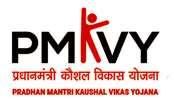- May 29, 2025
- News
- No Comments
The Complete Guide to On-Page SEO
By avoiding these pitfalls and applying robust keyword research, you can create content that not only ranks well but also genuinely serves your target audience’s needs. Remember, the key to effective on-page SEO is not to trick search engines but to create a valuable and accessible experience for your users. Invest in good practices and avoid shortcuts for sustainable SEO success. Before diving into the checklist for on-page SEO, it’s essential to understand the critical elements that require attention to optimize your B2B website effectively.
Find relevant topics with keyword research
This helps search engines access and understand the information your site provides. Keyword research, site speed optimization, crawlability, and content audits can all be part of the on page SEO process. At Stellar, we specialize in content strategy, development, and optimization. Creating new web pages helps brands market new products and services or target new locations. Our team is well-versed in creating individual web pages that boost your site’s visibility. With each new page creation, you can expect quality, user-focused, well-optimized, and search engine-friendly content.
- The ultimate agency plan features up to 1000 Stealth AI articles and the full On-Page optimization suite.
- You probably already have sitelinks underneath your result when you search for your brand in Google.
- They quickly summarize your page’s content to search engines and users.
Key Takeaway
If the person has to close your pop-up to read/scroll your content – the pop-up is intrusive and must be disabled. Having a responsive, mobile-friendly site is a must if SEO Anomaly you want to rank. In 2015 Google began to penalise sites which aren’t mobile friendly.
Google is becoming better at understanding what kind of results people want to see. Sure, every page goes down now and then but it shouldn’t happen too often and for a long period of time. Having too many long-lasting downtime periods has a negative impact on your SEO and traffic. Another thing you can do to improve the crawlability of your website is to make sure it has as few downtimes as possible. First of all, it looks better and makes more sense for the users. Let’s Encrypt offers a free SSL certificate that is automatically offered by all major web hosting providers.
When a page is relevant and useful, Google displays it to the user. Google’s algorithm changes often, but user experience remains a priority. Google recommends focusing on “people-first content,” which means creating valuable content that aligns with user intent is more important than ever.

 +91 92155 56156, 92159 08888,
+91 92155 56156, 92159 08888,  studymatrixhsr@gmail.com
studymatrixhsr@gmail.com 



